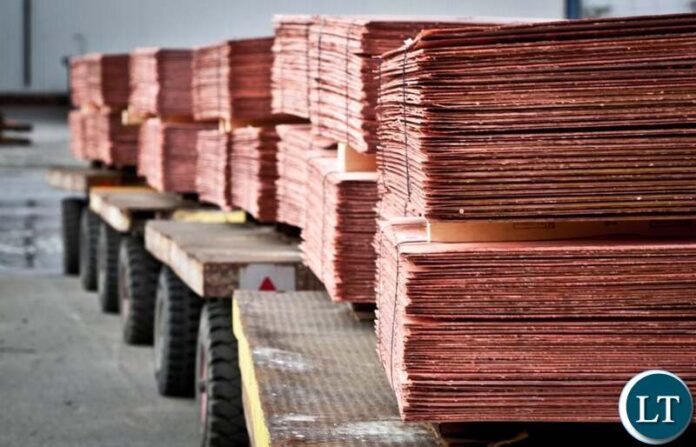The EMV Diaspora Forum turned its focus to Zambia’s mining sector on Sunday night, drawing sharp contrasts between the country’s immense mineral wealth and the meager benefits flowing to ordinary citizens.
The program, hosted on August 17th by Ambassador Emmanuel Mwamba, featured two Zambian-born mining experts with global credentials: Victor Mwaba, a U.S.-based mining industry manager who has worked with Rio Tinto and Freeport-McMoRan, and Brave Mushikita, a South Africa–based chemical engineer and CEO of PS (Pty) Ltd, with decades of smelting and refining experience.
The discussion, billed as a deep dive into “best mining practices and policies,” quickly expanded into a searching critique of Zambia’s failure to maximize benefits from copper and cobalt, even as global demand soars.
HYBRID MODELS AND POLITICAL WILL
Mwaba, who began his career underground on Zambia’s Nkana shaft before joining global giants abroad, argued for a hybrid model similar to Chile’s, where state-owned Codelco coexists with international operators. “Mining is a means to an end, not an end in itself,” he said. “We don’t mine just because copper is in our soil. We mine to enrich Zambian citizens. Without that clarity, every direction looks like the right one.”
Mushikita, drawing on his decades in smelting and acid production across Africa and Asia, agreed but pressed harder on ZCCM-IH, Zambia’s state-owned investment arm. “As long as capital is foreign, it will flow back home,” he said. “ZCCM should not just be a passive shareholder. It should be an operator. Political will is what’s missing.”
Both experts criticized Zambia’s tendency to over-incentivize foreign mining houses. Mwaba pointed to Indonesia’s policy mandating downstream processing and gradual nationalization. “Investors didn’t flee when the government took 51% of Grasberg mine. They stayed because 49% of billions is still valuable,” he said.
ELECTRICITY AND INFRASTRUCTURE GAPS
The panel also highlighted Zambia’s fragile infrastructure. “Electricity is fundamental. Mining is an ecosystem, power, roads, rail, internet,” Mushikita noted. “South Africa faced rolling blackouts, yet capacity was doubled. Why did Zambia wait for a drought before revisiting Mamba?”
Mwaba added: “We rely too much on Kariba and on God to make it rain. Industrial policy cannot be built on hope.”
CALLERS DEMAND LEADERSHIP
The conversation widened when callers phoned in from the UK and Lusaka, adding a political edge.
Patrick Chilufya, a UK-based Zambian, blamed “misplaced priorities and lack of leadership.” He recalled Kenneth Kaunda’s 1969 Matero reforms, when Zambia nationalized the mines and issued bonds to secure 51% ownership. “Today we suspend export duties on concentrates as if we have no smelting capacity. Who bewitched us?” he asked.
Dr. Fred M’membe president of the Socialist Party argued that Zambia had yet to benefit meaningfully from its copper. “Our people mined before colonialism. Today we get less from copper than Cuba earns from cigars, five billion dollars annually,” he said. “We are lucky only a third of our copper potential is exploited. Two-thirds remain. If we can’t benefit from what we have, what will we use? God did not put these minerals in Zambia for nothing.”
M’membe urged the government to tap diaspora experts like Mwaba and Mushikita for advisory roles. “They don’t need to leave their jobs abroad. Their experience is vital. They should be chairing our mining corporations and shaping policy,” he said.
ECHOES OF THE 1970s
The forum underscored a recurring theme in Zambia’s mining history: cycles of nationalization, privatization, and regret. From Kaunda’s buyout of Anglo-American managers in 1974, to the privatization wave of the 1990s, Zambia has swung between extremes, yet both Mwaba and Mushikita insisted that neither model alone will deliver lasting benefits.
“What matters is net value for Zambia,” Mwaba said. “Whether it is public or private, policies must retain wealth locally, create jobs, and build an ecosystem where contractors and equipment makers set up shop in Zambia, not just import from abroad.”
As the show concluded, Mwamba noted the urgency of the debate. Copper accounts for up to 70% of Zambia’s exports, yet most revenue escapes offshore through tax incentives, transfer pricing, and raw concentrate exports.
With global demand for copper expected to surge 25% in the next decade, both experts agreed Zambia faces a historic choice: remain a supplier of raw ore, or reclaim its legacy as a mining nation that builds towns, schools, and industries from its mineral wealth.
“This is not about nostalgia,” Mushikita said in closing. “It is about survival. If Zambia does not act now, the DRC will eat our lunch. And they already are.”



Very insightful. And we have our leaders self praising themselves about increased copper production when our copper is just developing already developed countries abroad and our country is just remaining with crumbs and big earth holes under ground.
Misplaced plans and priorities including thievery by greedy from all corners had lead to all these never ending non benefiting to enrich Zambia from its resources.
Here we need to start working on the mindset of our leaders first who think CDF can develop a country and who think increased copper production to 3 million tonnes will bring any development to this country. The actual problem is at that level. They will speak very ‘knowledgeably’ so and sound very intelligent but extremely ignorant of reality. And the danger is that the gullible Zambians are believing that there is light at the end of the tunnel when even the tunnel does not exist. The life of the ordinary Zambian is not changing at all
Who told you Zambians are gullible you foreigner. Keep it to yourself if you have no positives for an ordinary Zambian.
And remember for them when they employ thousands of civil servants, it is called development for the country. No clue that development means building an industrial base that grows the GDP and we stop praising the IMF for lending us money. IMF should be borrowing from Zambia
Comments are closed.